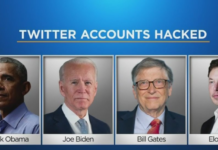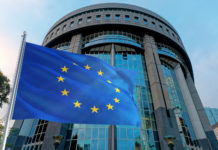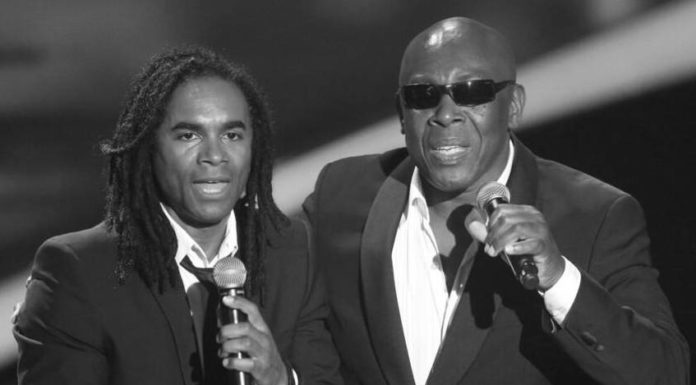 Photo:Wikipedia Wikipedia was among several websites to shut down on Wednesday. CNN – Wikipedia was among several websites to shut down Wednesday in protest of anti-piracy bills now in Congress that critics say could amount to censorship. Instead of the usual encyclopedia articles, visitors to Wikipedia’s English-language site were greeted by a message about the decision to black out its Web page for an entire day. “For over a decade, we have spent millions of hours building the largest encyclopedia in human history. Right now, the U.S. Congress is considering legislation that could fatally damage the free and open Internet. For 24 hours, to raise awareness, we are blacking out Wikipedia.” Why Wikipedia went down at midnight However, users were able to access Wikipedia on some smartphones. The site and several others went dark at midnight Tuesday; others followed suit later in the day. The protest is in response to the Stop Online Piracy Act bill, a piece of proposed legislation that is working its way through the Congress. A Senate committee approved a similar bill in May called the Protect IP Act, which is now pending before the full Senate. The controversy over SOPA and PIPA has turned into an all-out war between Hollywood and Silicon Valley. Media companies have united in favor of the bills, while tech’s power players are throwing their might into opposing them. “Both SOPA and PIPA are threats not just to the U.S. economy, and not just to all the jobs that this tech sector creates, but if they had existed, Steve Huffman and I could have never founded Reddit,” said Alexis Ohanian, who co-founded the site. Millions visit Reddit to submit interesting links from websites, discuss them and vote on them, he said, calling it “sort of a democratic front page of the web.” Reddit also went dark Wednesday morning. One member of Congress, Rep. Darrell Issa, R-California, who opposes the bills, said the unprecedented blackouts had “turned the tide against a backroom lobbying effort by interests that aren’t used to being told no.” Issa is pushing for consideration of his own plan, the OPEN act, addressing the matter. The blog Boing Boing also blacked out for the day. “Boing Boing is offline today because the U.S. Senate is considering legislation that would certainly kill us forever. The legislation … would put us in legal jeopardy if we linked to a site anywhere online that had any links to copyright infringement.” Battle over anti-piracy legislation The blog Boing Boing also blacked out for the day. “Boing Boing is offline today because the U.S. Senate is considering legislation that would certainly kill us forever. The legislation … would put us in legal jeopardy if we linked to a site anywhere online that had any links to copyright infringement.” “In the past, the media industry has often gone after particular infringers — people who have downloaded stuff off the Internet and sharing it. And now they’re going after websites that link to these things,” Rob Beschizza, Boing Boing’s managing editor, told CNN on Wednesday. “The bill is supposed to let copyright holders get court orders against them, and there’s all sorts of various measures for getting sites blacklisted or blocked. “The problem is that the measures are so wide-ranging and so open to abuse that we’re worried that sites like ours could be brought down by frivolous claims,” he said. While not blacking out its home page, search giant Google joined the cause by covering its famous logo with a black rectangle and urging visitors, “Tell Congress: Please don’t censor the web!” The popular online classified site Craigslist was also blacked out, with a note asking users to tell members of Congress they oppose the bills. SOPA explained: What it is and why it matters “The Internet is the most powerful tool we have for creating a more open and connected world,” Facebook CEO Mark Zuckerberg posted on the site Wednesday. “We can’t let poorly thought out laws get in the way of the Internet’s development. Facebook opposes SOPA and PIPA, and we will continue to oppose any laws that will hurt the Internet.” If SOPA passes, copyright holders would be able to complain to law enforcement officials and get websites shut down. Search engines and other providers would have to block rogue sites when ordered to do so by a judge. Sites could be punished for hosting pirated content — and Internet companies are worried they could be held liable for users’ actions. Boing Boing wrote: “Making one link would require checking millions (even tens of millions) of pages, just to be sure that we weren’t in some way impinging on the ability of five Hollywood studios, four multinational record labels, and six global publishers to maximize their profits.” Beschizza said the bill could mean that sites like his could ultimately be taken off the Internet, and that users of sites might not be able to publish what they like because of increased liability for both users and the site. “The problem is, this legislation won’t stop piracy,” he said. “In years of new laws and aggressive litigation, none of it has had the slightest impact on piracy. Even if (bill supporters) get everything they want, there’s no reason to think that pirates won’t find a way around it. If the media industry, the MPAA (Motion Picture Association of America) and so on, if they want to find a way to fight piracy, they need to spend less money sending legal threats and more money making new culture and maybe working on their PR a bit.” SOPA’s supporters — including CNN’s parent company, Time Warner, and groups such as the MPAA — say that online piracy leads to U.S. job losses because it deprives content creators of income. The bill’s supporters dismiss accusations of censorship, saying the legislation is meant to revamp a broken system that doesn’t adequately prevent criminal behavior. But SOPA critics say the bill’s backers don’t understand the Internet’s architecture, and therefore don’t appreciate the implications of the legislation they’re considering. “Within our community we’re very strong defenders of copyright. We have very strict rules about obeying copyright and we don’t link to materials that we know to be copyright infringement. That isn’t really the issue,” Wikipedia co-founder Jimmy Wales told CNN on Tuesday. “The other side will try to paint this as anybody who’s opposed to this must be making money off of piracy or be in favor of piracy. That isn’t true. The issue here is that this law is very badly written, very broadly overreaching.” “I’m a big believer that we should be dealing with issues of piracy and we should deal with them in a serious way, but this bill is not the right bill,” Wales said Tuesday night on CNN’s “OutFront.” Google warned that the impact of such legislation would be far-reaching. “YouTube would just go dark immediately,” Google public policy director Bob Boorstin said at a conference last month. “It couldn’t function.” “I don’t think it was fair to expect big sites like Twitter and Google to go down, because they kind of serve a role as a communications medium, as an infrastructure medium , so they can’t really go down,” Beschizza said. “But sites like ours, which are small sites, which are easily put into all sorts of trouble by frivolous lawsuits, we’re the people who need to worry about this, and I think our readers will understand why we’re doing it.” Asked how he would change the bill, Beschizza said, “I would kill it, because the whole thing, from the ground up, was designed to interfere with how the Internet works. That’s the current kind of solution that the media is approaching, and it can’t be fixed. When you approach it from that perspective … you’re only going to be one step away from censorship and all the methods that authoritarian regimes use to keep control of the Internet in less pleasant places than the United States.” “I just wish we had been called to the table when this legislation was written,” said Ohanian. He said the bill “was clearly written by lobbyists and not technologists.” Last year, he said, $94 million was spent lobbying to get the bills written, although he acknowledged bill opponents have also spent millions fighting it. He criticized Congress for failing to address unemployment or the nation’s deficit, but “as soon as a lobbyist shows up with $94 million, Democrats and Republicans line up to co-sponsor it. Something is wrong there.” “The world today needs political leaders who are pro-Internet,” Zuckerberg posted Wednesday. “We have been working with many of these folks for months on better alternatives to the current proposals. I encourage you to learn more about these issues and tell your congressmen that you want them to be pro-Internet.” In November, Google and Facebook, both tech behemoths, lodged a formal complaint in a letter to lawmakers, saying: “We support the bills’ stated goals. Unfortunately, the bills as drafted would expose law-abiding U.S. Internet and technology companies to new uncertain liabilities (and) mandates that would require monitoring of websites.” And Washington has taken notice. The growing Internet protest against the online anti-piracy bill moving through Congress is “daunting,” a Senate Democratic aide said Tuesday. Source: Online protest threatens piracy bill The aide said the protest may be powerful enough to keep senators from voting to even take up the bill, which until recently commanded rare bipartisan support. “Before, it looked like it would pass with 80 votes, and now (the online protest) looks like something that will suck the votes away,” the aide said. “We’re at a tipping point. It will either become a huge issue or die down a bit and that will determine the future of this.” The House Oversight and Government Reform Committee postponed a scheduled hearing Wednesday to examine the impact of portions of the bill on the Internet, after assurances the legislation would not move to the House floor without a consensus, said Issa. The aide said it was premature to say exactly how it will play out, but acknowledged that because of protest from Internet mainstays such as Google and Wikipedia, “the merits of the bill are getting lost” and “sand is shifting pretty quickly” against it. At Wikipedia, “we’re not anybody’s paymasters,” Wales said. “We’re a charity devoted to sharing free knowledge. We’re a community that’s come together to build an encyclopedia and give it away for free to everyone. We have absolutely no positive interest in encouraging piracy or we have no way of profiting from piracy.” |




























